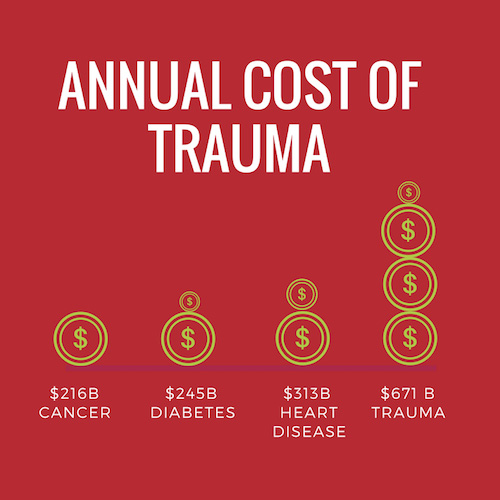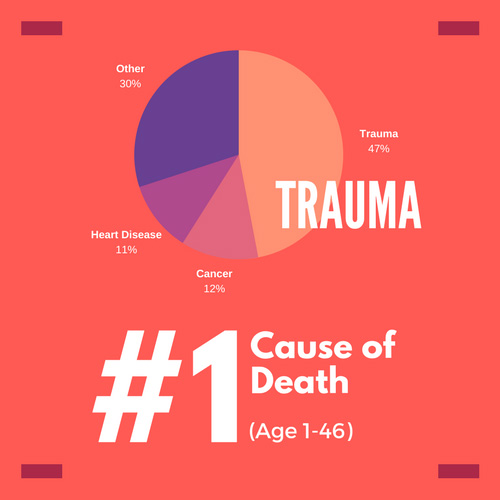In the United States, 61 percent of men and 51 percent of women report exposure to at least one lifetime traumatic event.
What is trauma? It is a deeply distressing or disturbing experience. The cause and effect of trauma is wide and varied depending on heredity and culture. Click here to learn about our family trauma conference. The links below represent some of the thinking on trauma in ministry.
- Seven Key Traits of a Trauma-Informed Congregation
- The Trauma-Informed Toolkit
- What Does It Mean for a Ministry to be Trauma Informed?
Some common sources of trauma include:
- rape
- domestic violence
- natural disasters
- severe illness or injury
- death of a loved one
- witnessing an act of violence
For more info, visit https://www.psychguides.com/trauma/
Examples of traumatic events include:
- death of family member, lover, friend, teacher, or pet
- divorce
- physical pain or injury (e.g. severe car accident)
- serious illness
- war
- natural disasters
- terrorism
- moving to a new location
For more info, visit https://www.healthline.com/health/traumatic-events



